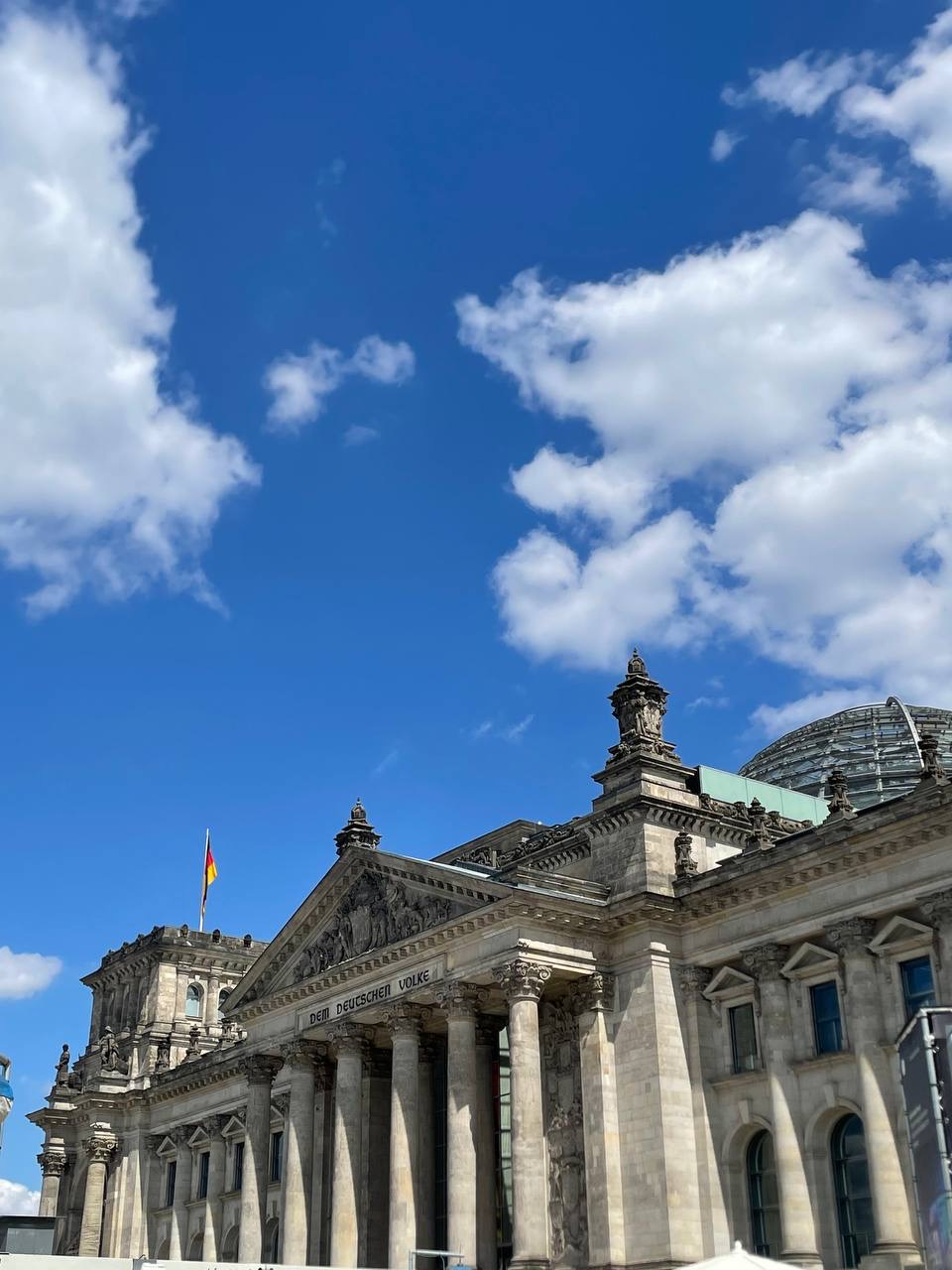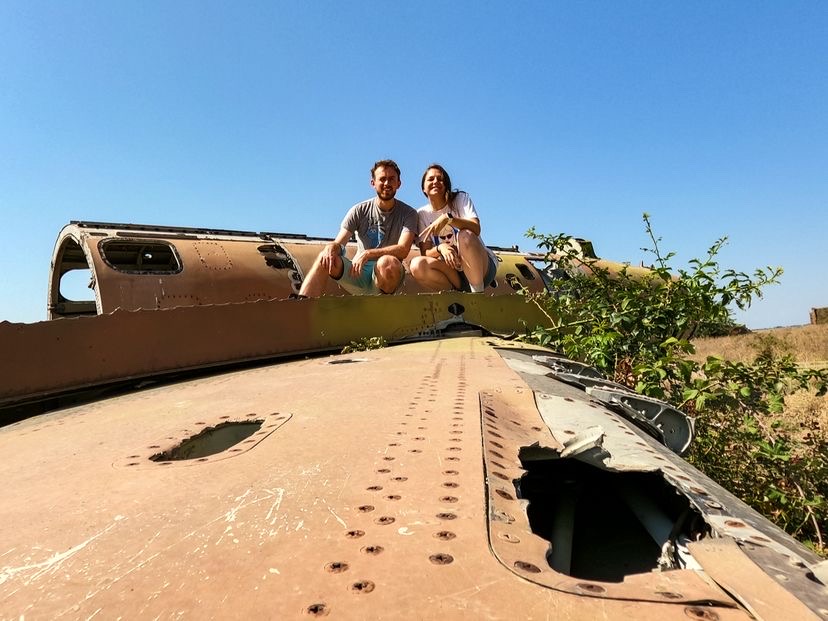
Traveling changes you. You experience a lot of places, meet a lot of people, try a lot of things, and at some point choose something different from the "perfect trips" they show you on Instagram and TikTok. You start with a purpose but lose it quickly. You make a plan but get bored of it after a short while. You haunt big cities and famous attractions but end up in small towns and villages. That's the beauty of traveling – the beauty we don't know when we just start to move.
I've been traveling for more than 2 years. I've visited 20-something countries. I've seen different places. I met different people. I did a lot. But I don't want to stop – not yet.
Fortunately, now I know the way I want to explore this world. And I want more people to do the same thing – so we can experience real life, see real people, and continue traveling without harming the places and the communities.
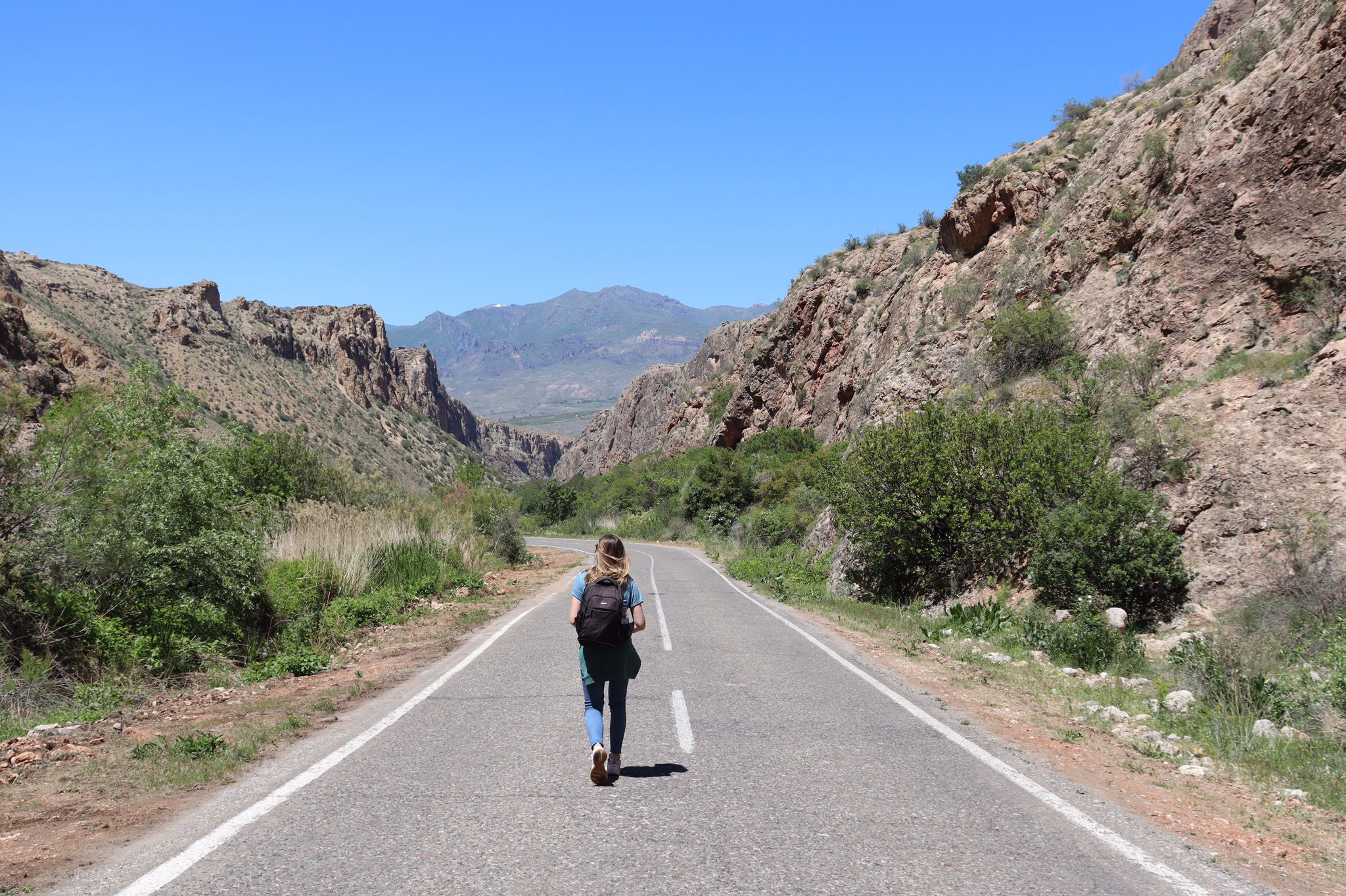
What was my way to become a "traveler"
I started to explore the world, as most people do – by being a tourist. I was buying the cheapest flights to the most popular destinations, was getting ready with a list of must-see attractions you can find on the first page of a Google search, doing the same stuff in the city that all the tourists are supposed to do: walking around, checking-in boxes, taking pictures (that I was most likely not going to post or rewatch), and saying to all my friends after coming back "That was THE trip." That was actually nothing.
My life changed in 2021 when I left my country – Belarus – in the short term because of political oppression. I didn't have a lot of options. And I didn't have time to prepare. So I just took a random flight to the country that accepted me without a visa, packed some stuff, said goodbye to my family, and went to Georgia with no idea what would be next.
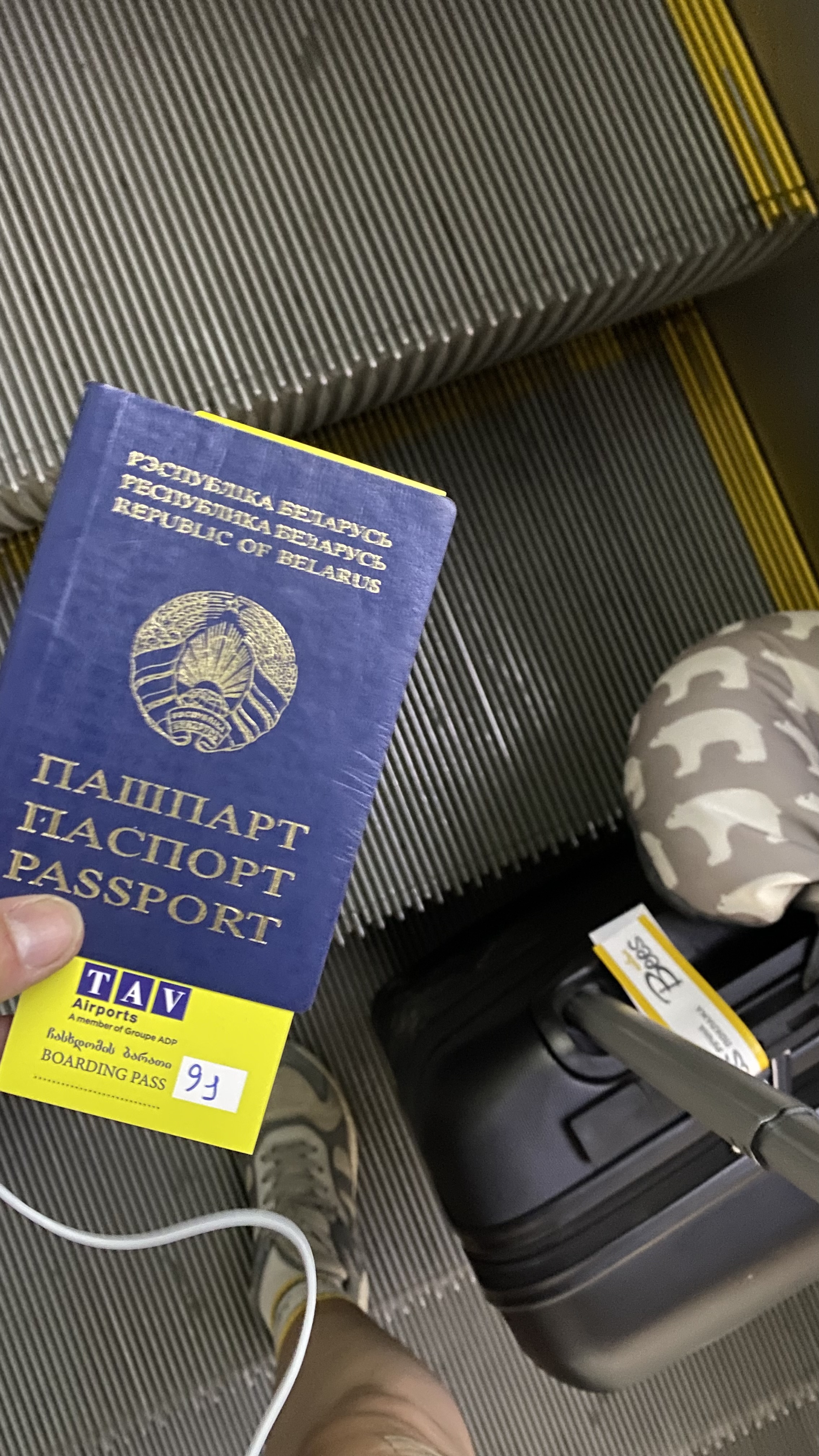
I had a small plan: to go there, check the cities, choose a place to settle down and live everyday, peaceful life. I'm happy my plan fell apart. Because that's what made me who I am right now.
I met people who showed me how my life could be. I decided to join them instead of building my "new normal." We traveled all around Georgia while also working, changing places every few days or weeks, meeting locals, looking for hidden gems and unknown attractions. And, as I understood later, that was the only proper way to explore the country. Because we fell in love with it, like I think no one else did.

Photo: @lilalieneke
When my nomad buddies left Georgia, I decided to continue traveling the same way, but this time solo. The further I went, the more meaningful it became to me.
What is so different about "traveling"?
I started to separate "tourism" from "traveling." For me, the first one means you follow the trends. The second – you follow your guts. The first is casual. The second is special. The first is harmful. The second is meaningful.
Since I came to Europe, my "touristic part" came back. I was excited to visit all these places I was dreaming about when I was a kid. I wanted to take a tram in Lisbon, go to Sagrada Familia in Barcelona, see Paris from the Eiffel Tower, and party in Amsterdam and Berlin. And I did. But the reality didn't match my expectations.
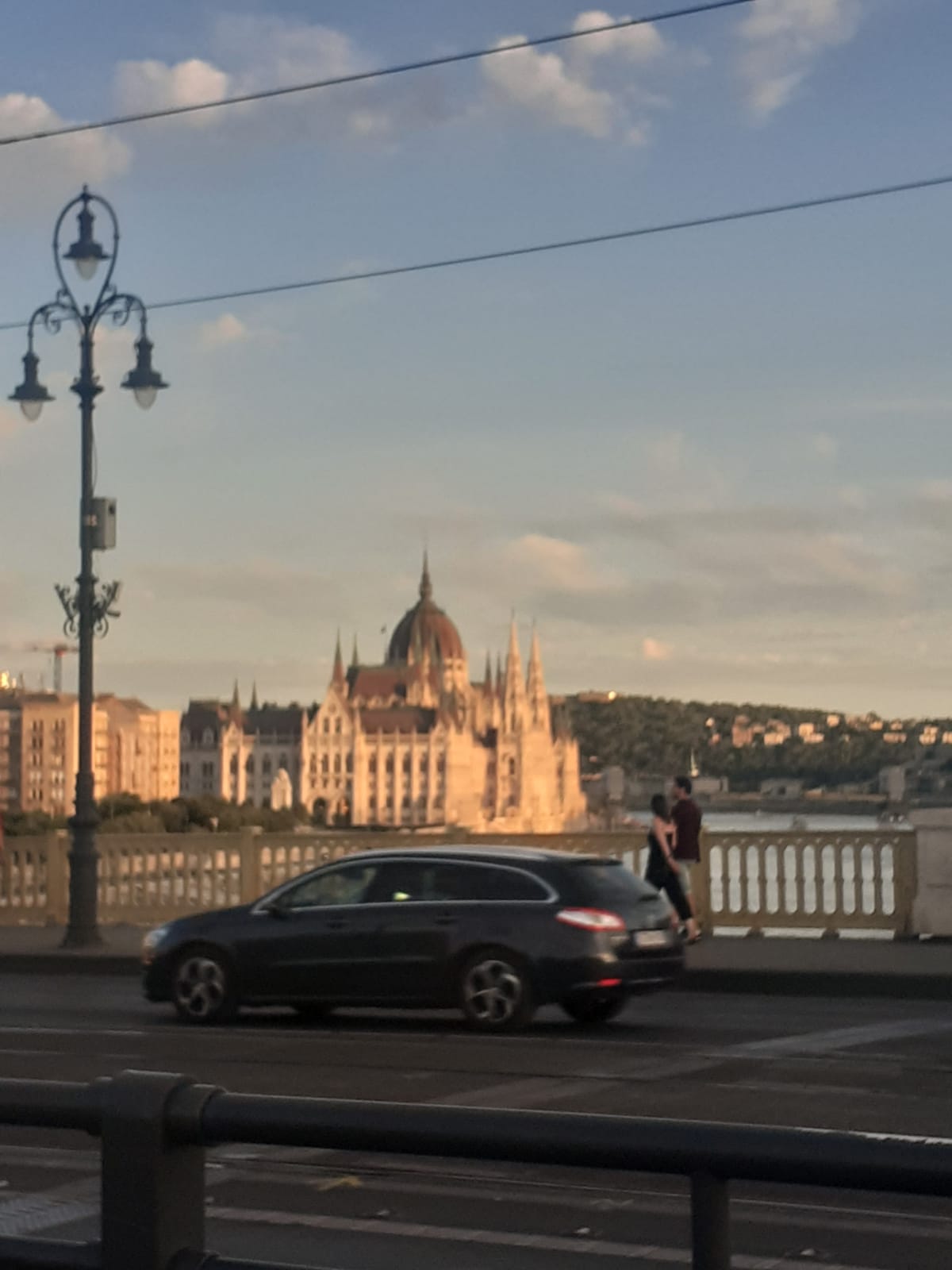
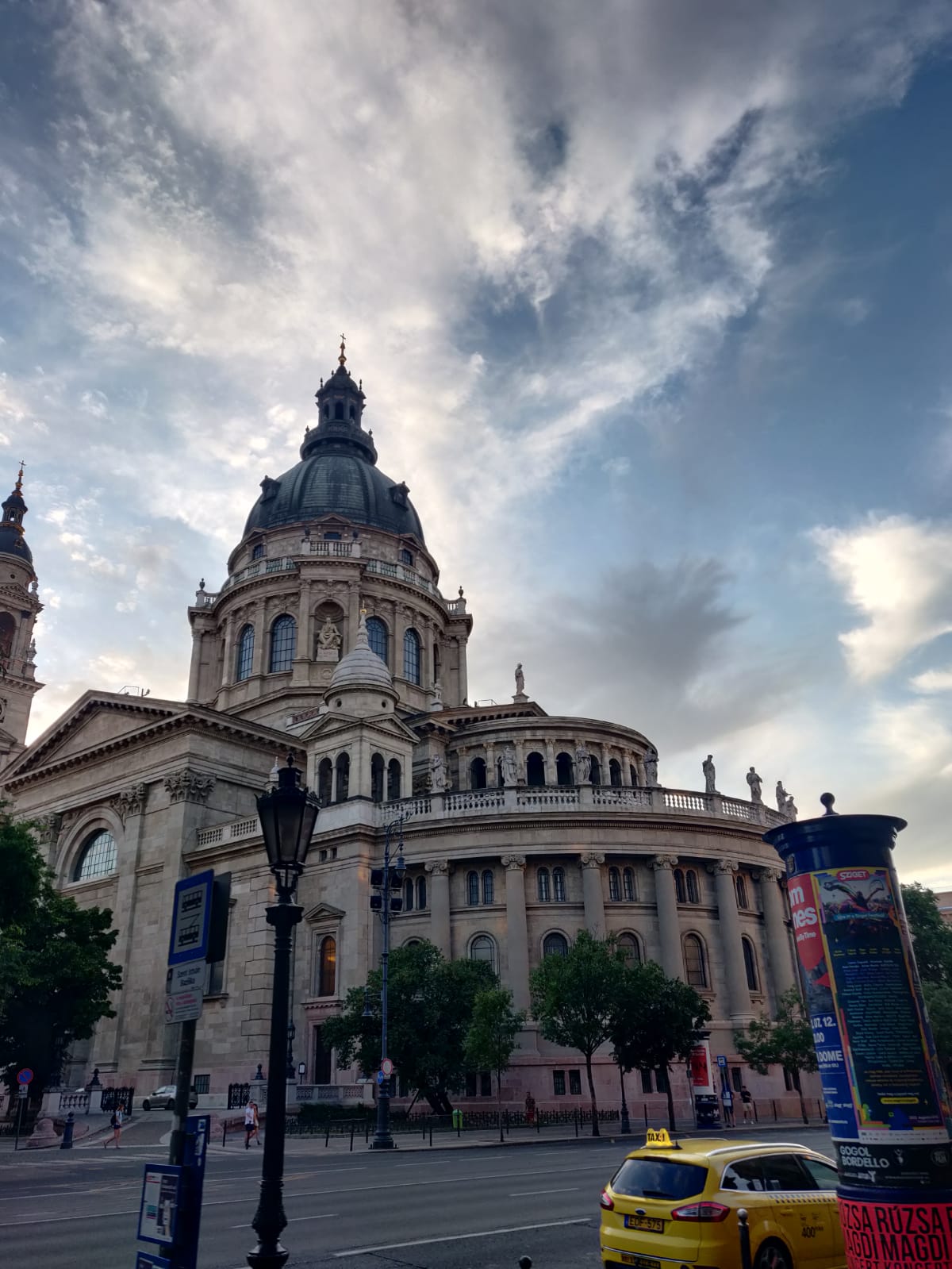
After traveling for a while, hanging out with locals, and living their lives, this touristic experience was not enough for me anymore. I wanted something different. And the answer was on the way. I loved long nights walking around unknown places waiting for my bus or Blablacar, the stops in small cities and towns where my friends lived, or the villages – destinations of my hitchhiking drivers. Those were the places I didn't expect anything from. But they had their vibe, stories, and beauty – pure and not touristic as they've always been.
In Spain, I really liked Gijon. That was the place, where I saw my first ocean and first surfers. It’s really small and quiet, but so cozy and so beautiful! In Gran Canaria, I lived close to Tejeda. It’s a pretty famous place for those who like hikes. But at the same time, it’s wild and unique. I’m not sure you can find anything similar anywhere in the world. In Belgium, I really enjoyed Leuven. It’s a town close to Brussels, that combines old medieval and young student vibes. My favorite city in France is Rouen. It was supposed to be a short stop for me, but its beauty took my heart, I decided to stay for a while. Where are all of these places, you want to ask? Better to check on Google Maps.
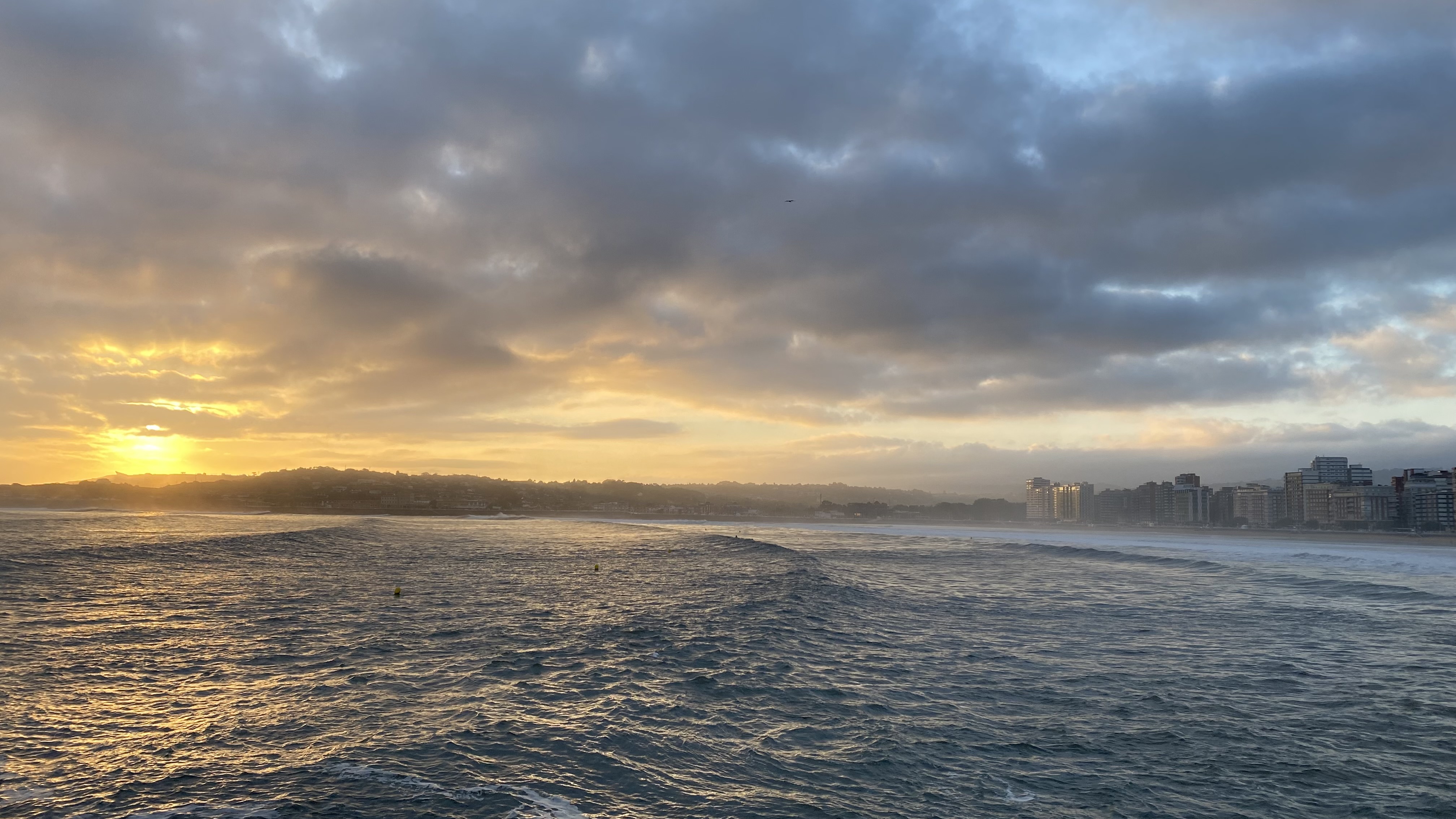
I'm not saying these are the places we all should travel to now – that might make them as touristic as the others are. But I believe these (and actually all others) are the places worth visiting on your way to a destination point. Maybe when you are there, you'll decide to stay for a few more nights. Perhaps you'll not enjoy them at all. But that's okay – we all prefer different things.
What is wrong with Paris, Berlin, Lisbon, and Amsterdam?
Well, nothing is wrong. But doesn't it bother you that so many people want to go there and so many do? That streets are full of crowds? That you have to wait hours in lines to get to the attractions or restaurants? That you have to follow plenty of weird rules, have to pay more just to stay, or to see, or to visit? Why so, you want to ask?
In pursuit of money, popularity, and title, city authorities didn’t think about the limits. And now they are trying to turn time back. But it's impossible.
Countries suffer. Locals suffer. Tourists and travelers suffer. But no one really tries to change anything. Or they do it, but in a tough way – it seems like they don't want to see us in their places anymore. What am I talking about? Let's go through some facts.
Amsterdam
The Dutch capital has always been famous for "sex, drugs, and rock 'n roll." Although local people (as well as the authorities) don't want to have this reputation for their city. In 2023, they started a "stay away" campaign, literally fighting against "rebel tourists" who come for drinking, cannabis, and prostitution.
Here come new restrictions. Local authorities are on the way to shut down most of the parties and pub crawls; forbid smoking weed on the streets. And the further, the more.
A top goal of Amsterdam is to become an attractive destination for those who come to explore its heritage, history, food, traditions, and people. Totally the opposite direction, right?
Venice
This beautiful and outstanding city is not just suffering from crowds of tourists – soon, it could completely disappear. And this is kind of our fault.
Tourists are coming to Venice from all sides: by cars and buses, by planes, by cruises. But its narrow streets and fragile waterways are not made for such amount of people.
To manage the situation and make the life of the citizens easier, the government of Venice decided to limit the amount of tourists. That's how there appeared a ban on cruise ships, a new tourist tax, and control for all the popular attractions. And there are most likely other things coming soon.
Barcelona
Barcelona is going further: limitations for travelers are imposed not just by the authorities but by the tourist places themselves.
For a few months, some restaurants and bars on Carrer de Blai Street stopped welcoming solo tourists and locals. Their position is clear: more people at the table can bring more money. But should it be really about that?
This is one of many problems. Locals complain a lot about tourists and digital nomads everywhere, overcrowded locations and no normal life, and increased prices on accommodation and products. Is it how you want to be remembered there?
Hallstatt
You definitely saw the picture of this beauty: it's all around Instagram, TikTok, other social networks, and not only them.
But this is actually a village. With less than 1000 inhabitants and more than 10,000 tourists (!) daily in summer. Could you imagine the life of locals?
The weirdest thing is that most people just stop there for one picture. Yes, just one – and go. Of course, it becomes annoying at some point.
To eliminate this kind of "view-hunters," authorities decided to put a fence in front of a picturesque panorama. Now, it's not possible to fully enjoy it, not for us, nor for locals.
Japan
Since Japan lifted COVID restrictions, millions of tourists visited the country. They almost hit the indexes of pre-pandemic time. Not surprisingly, the Japanese government started to be concerned.
Now, they've created a plan of how to fight overtourism. Step one – introducing new taxes for tourists. Step two – working on the development of the transportation system and increasing the prices for the tickets. Step three – the most important – launching a campaign promoting other destinations for travelers.
Here are some more examples from all around the world:
- To keep tourist numbers low, a lot of countries introduced taxes. Some of them went to crazy levels. The best example is Bhutan, where the tax is almost 200 euros daily. Per day!
- To limit the number of visitors, popular attractions create new regulations. For example, Macchu Picchu or Acropolis are now accessible only with time slots. You should book them in advance and can spend a certain amount of time. Not convenient, right?
- Southern Asia is trying to eliminate backpackers and budget tourists and focus on people with money (they call it a "different way of traveling"). Thailand, for example, forbids going to some beaches by boat. Bali banned scooter renting for tourists. But that's what the islands always were about!
And there is so much more!
Looks not really cool, right? Well, my friend, that’s somehow on us.
What do locals think about tourists?
Every year, 19.5 million people come to London, 19 million – to Paris, almost 15 million – to Istanbul, around 9 million – to Amsterdam, 7 million – to Barcelona. How would you feel, if it was your city? I asked some locals.
Connor, London
For me personally, tourists aren’t an issue. I’ve lived in London my whole life so I’ve just learned to live with it. I work in a tourist-heavy area, but other than that I don’t tend to hang around tourist spots so there’s never a problem, just the occasional busy street or road – I may have to walk or cut through certain alleyways in the city to get around the big crowds.
As a Londoner, I expect the city center to be constantly busy, whether it's with tourists, workers, locals, etc. So it's no problem for me. However, it is a shame that a lot of these tourists don't get to see the really underrated side of London beyond the tourist traps.
Yona, Paris
Well, in Paris, I'm not that exposed to tourists either, because they don't usually go to the «real people» places. So I can't say I'm bothered by them. I don't see them unless I go to touristy areas, like the Marais or the Eiffel Tower.
When you get there, oh man! Terrible! It's like traffic but on the pavement! And I even feel annoyed for the tourists themselves; I wouldn't like to visit places in these conditions, even though they are super cute and all…
Also, it's so horrible to hang out there because of the crowd and the high prices. Sometimes, I feel like I don't really know the Paris that foreign people dream about. For example, I went to the Eiffel Tower once when I was a kid, and I went to the musée d'Orsay once, too. But probably every person living in a big city could say that: when you live there, you never do the touristy things, right?
Ekin, Istanbul
In Istanbul, if a tourist asks locals about something, people would be more than happy to help even if they don't speak English. However, in recent years, the situation has changed a little bit.
Because of the ongoing economic crisis in Turkey, locals started to have ideas like "I can't buy anything in my country, but these tourists can." These thoughts, of course, annoy people. I also started to hear from many friends that they, for example, can't find taxis at night because taxis only accept tourists – after all, drivers can get more money from them. These practical issues they experience make them distant from the idea of welcoming tourists. But I wouldn't say that they wouldn't help if they were asked for help.
Even though there are some growing bad feelings towards tourists sometimes, I still think that people living in Istanbul are really welcoming. But it could also be confusing because it brings a lot of scams (for example, from small shop owners and taxi drivers).
Roy, Amsterdam
I moved to Amsterdam 2 years ago, and when you move here, you already know there will be a lot of tourists. So I don't have any problem with them. But it's different for the ones who were born here.
If you go to the city center area, it can be very busy with people, and if you have to go from one point to another, it can be annoying, but that is part of it. Yes, you do see some tourists under the influence of drugs (well, it is Amsterdam..), but as long as they don't bother anyone else and they have a good time, that's fine with me. I guess not everybody thinks the same way about it.
The city has taken measures to keep tourists out, like forbidding parties, limiting river cruises, and changing the closing times of restaurants and bars. But I cannot estimate whether these measures have had the desired effect.
What could be a solution?
There are two ways to solve the problem. One (you might not like it) – stop going to these over-trending destinations and choose something else.
There are so many beautiful places worldwide, hidden somewhere there. It would've been stupid not to give them a chance!
For example, instead of Paris, you can go to Bordeaux or Lyon. Instead of Florence, go to Siena. Utrecht could be a good alternative for Amsterdam, Gothenburg – for Stockholm, Cesky Krumlov – for Prague.
If you want to go to Dubai, check Oman. And the Turkish Riviera will be not worse than the French one.
Thinking of going to the Dolomites? How about Georgia?
And Milos and Naxos will be much more exciting (and accessible) than Santorini and Mykonos.
So many places you probably didn't hear about (or didn't want to look for). But they are worth visiting. Everything is worth visiting!
If you still want to check on the "touristic legends," try to do it differently. Paris, Berlin, London, Rome, and Lisbon can be the same if you explore their other sides, hidden from the tourists. How to find them? Stick to these rules:
- You can dig deeper before going there: check other pages of the Google search, go through TikToks and Insta Reels to find something special.
- Ask ChatGPT – maybe it will help as well :)
- Find a local buddy in the city, who can show you around, or ask people on the streets about their favorite places.
- Explore the area you are staying at. Or hop off the bus / metro train at a random place to see what’s around.
- Try to feel the city, understand it, see it from a different angle.
- Be interested in your experience, not someone else’s.
- Don’t expect anything big.
- Enjoy the way, the process, the feelings, not just the places.
What’s my perfect formula for traveling?
I should be honest, I don't follow all those rules. But I've found a perfect way for myself to explore this world. You could try it as well.
First – I try to never expect anything.
And it will turn into a fantastic experience.
My favorite countries so far are Georgia and Armenia. As a Belarusian, they've never been on my to-go list. I've always dreamt about something more significant.
At the time I was leaving, I didn't have options. And since I was interested only in going as fast as possible, I didn't do any research. Georgia became a first mind-blowing experience. This little country has literally everything you could seek: sea and mountains, natural parks and canyons, forests and deserts, attractions and ruins. Is it even possible?
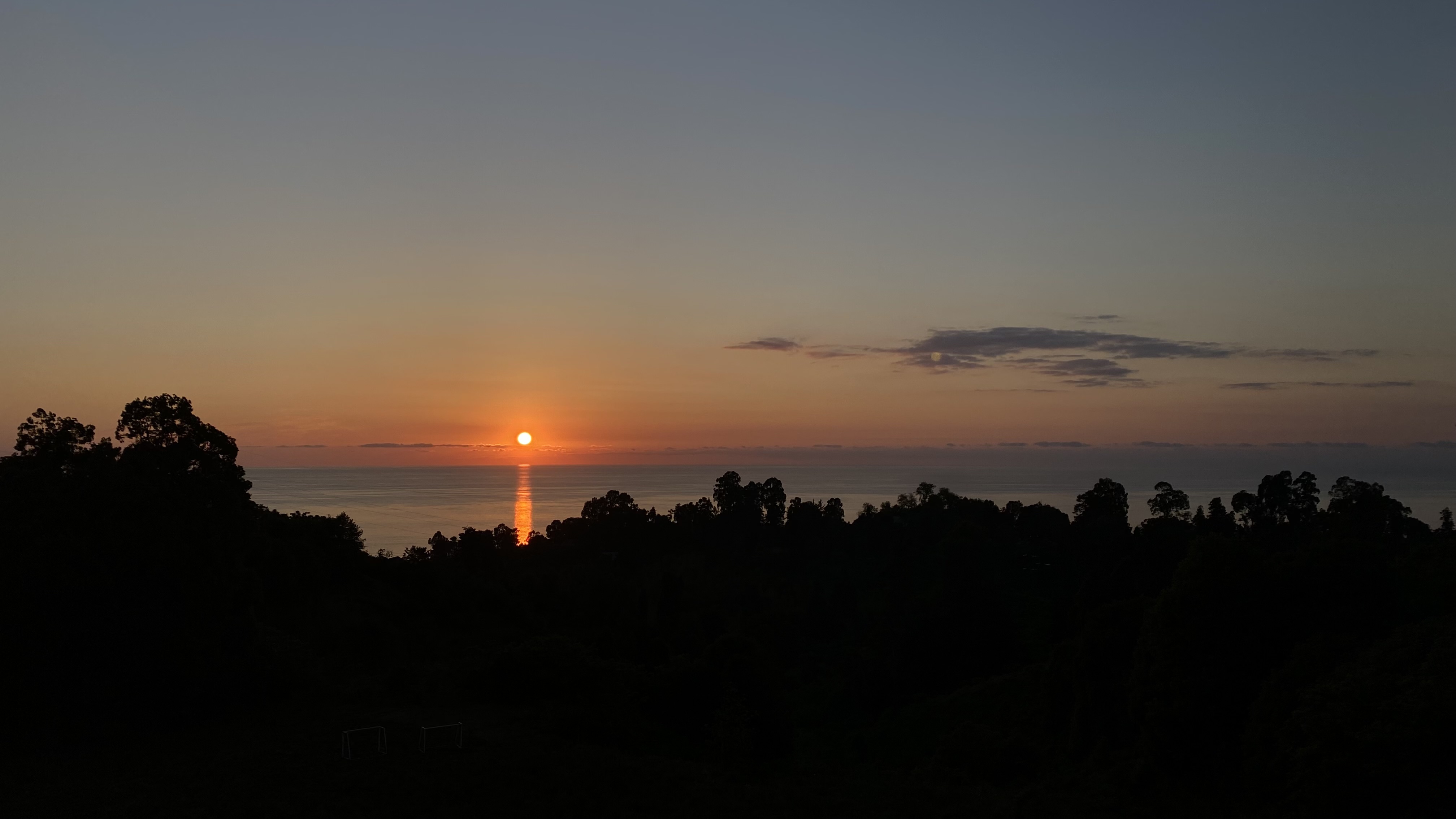
Armenia was a second love. I went there just because I wanted something new, but I didn't know where to go. I knew nothing about it. And I gave myself a weekend to check on the city and decide if I'm staying or leaving.
After the weekend, I stayed in Armenia for 5 more months. And after 5 months, I don't know why I left. I still didn't see so much!
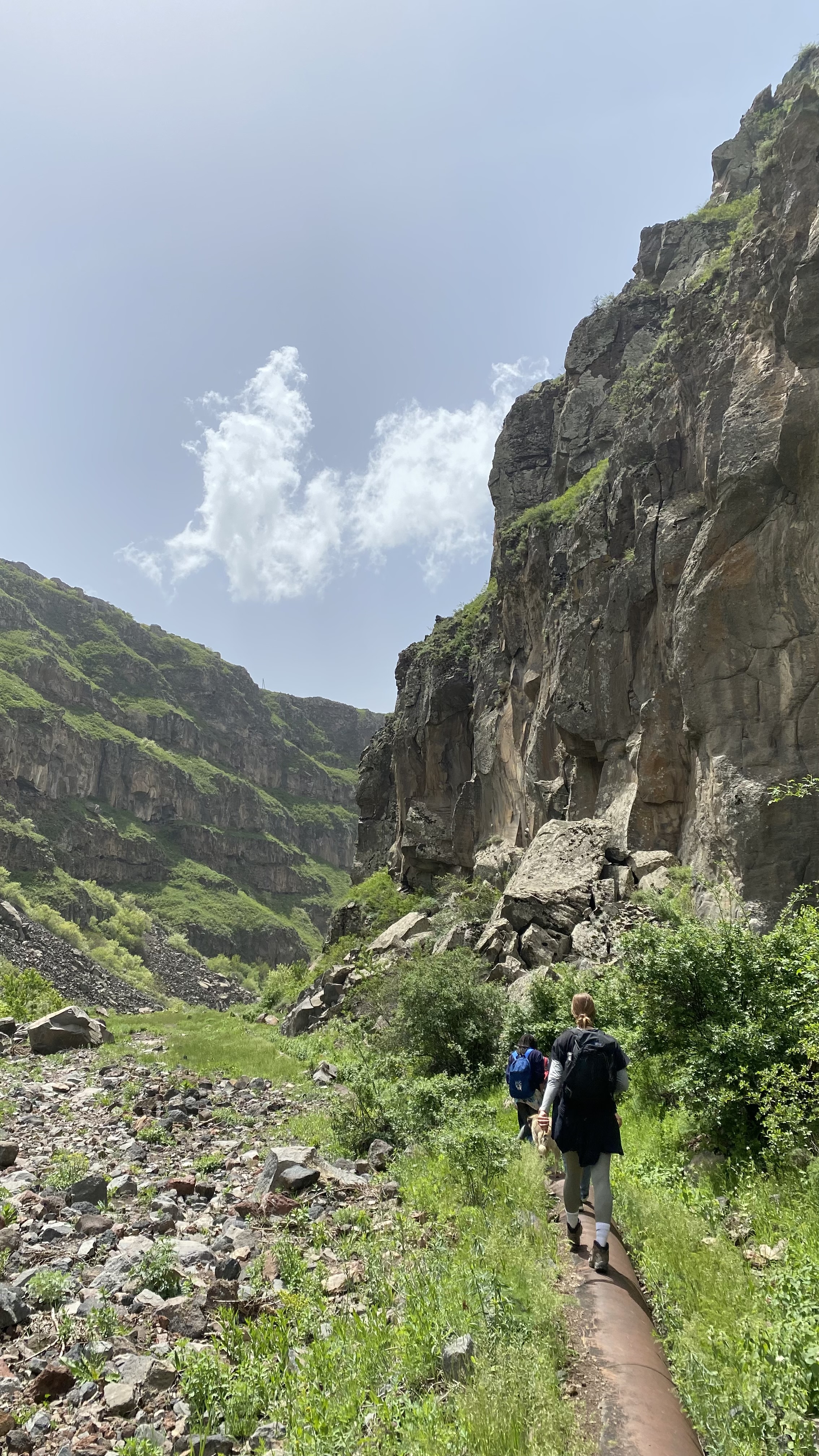
But these are not the only examples.
I didn't know anything about, say, the Canary Islands either – just the fact that most Belarusians consider it as a chick place. I went there – to Gran Canaria – with a 20 euro ticket. I stayed there for a month in the village. I experienced tourist and local life. And I understood how wrong we were back in Belarus thinking about going to canaries only when (and if) we were rich.
Second – I do a slow-traveling.
My work allows me to be anywhere. That’s why I’m not in a rush to come to the places and leave them right away. I take my time.
I live a life of locals on weekdays: I work, I walk, I run, I chill. On weekends I do some trips. Yes, I see less than other travelers do. But I don't need it. I always leave a reason to come back.
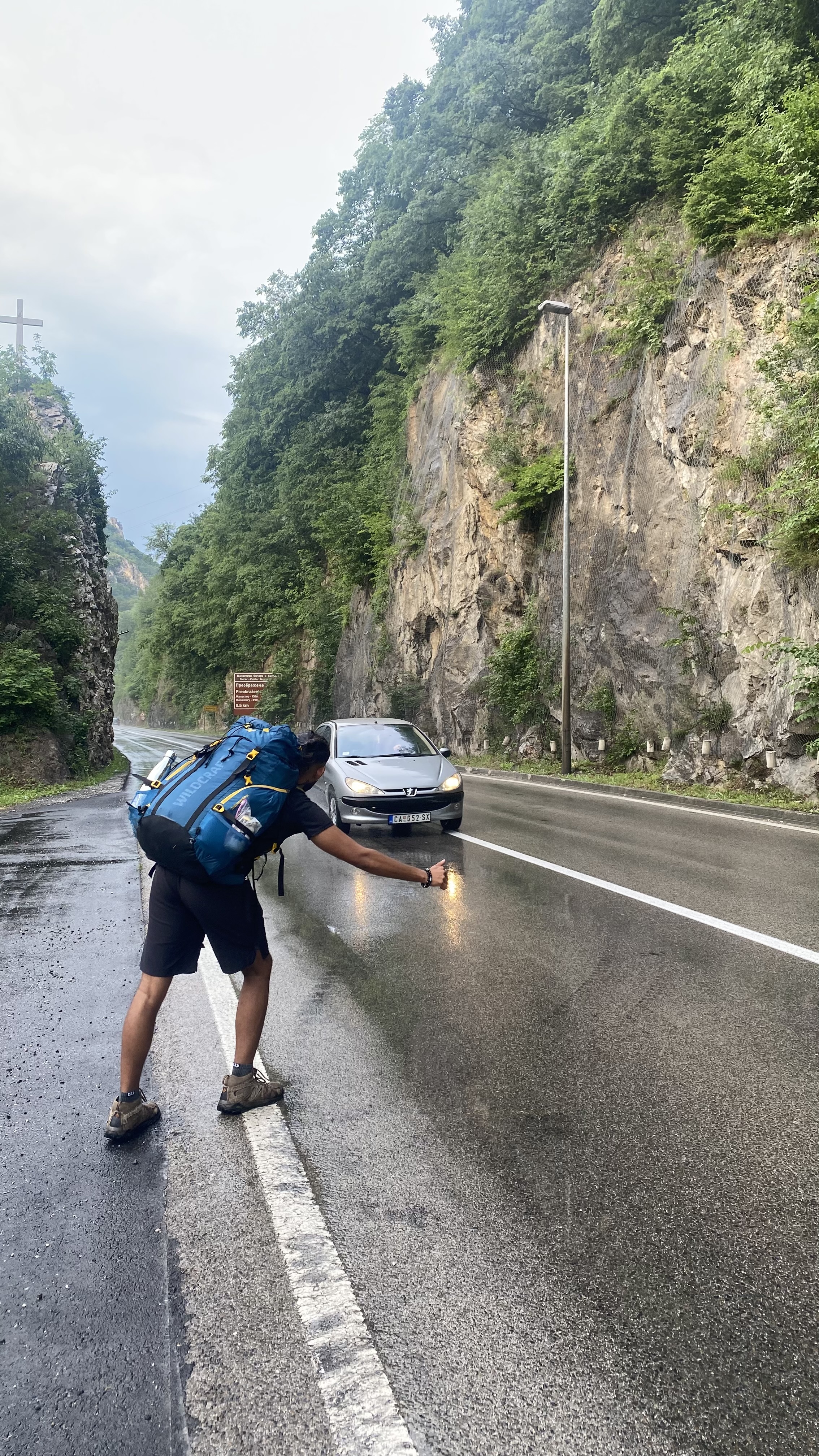
Third – I try to travel by land.
It's partly because of the impact I want to leave on the planet. Yeah, planes might be cheaper, but not as eco-friendly as we want them to be. But it's also about seeing the countries and exploring the places.
If not for the trains, I would never see how small German cities look like. If not for Blablacars, I would not know that Spain is perfect for road trips. If not for hitchhiking, I would never see the authentic French village. And I would never meet so many amazing people from all over the world who want to show me their places I've never heard about. I would miss so much!
Fourth – I meet locals and expats.
This is actually the first thing I do when coming to the country. I look for locals everywhere: Couchsurfing, events, streets, bars, etc. Because I'm done with being a tourist. I want to see real country, real life.
Traveling all around also brings you a lot of friends. Accidentally, many of them are from small towns, villages, or suburbs. Don't hesitate to visit them – you'll not regret it. Well, I didn't.
Fifth – I’m not afraid of changing the plan.
Some of the best trips I had in my traveling life, were the ones I didn’t plan. It’s cool to change directions, to follow the people, to be open for opportunities. Because if it never was in your original plan, maybe you would never put it in your next one – and never experience it at all.
*This article is part of the Youth Media project, implemented by DCN Global with Gen, știri and Forum Apulum. Read more here.
